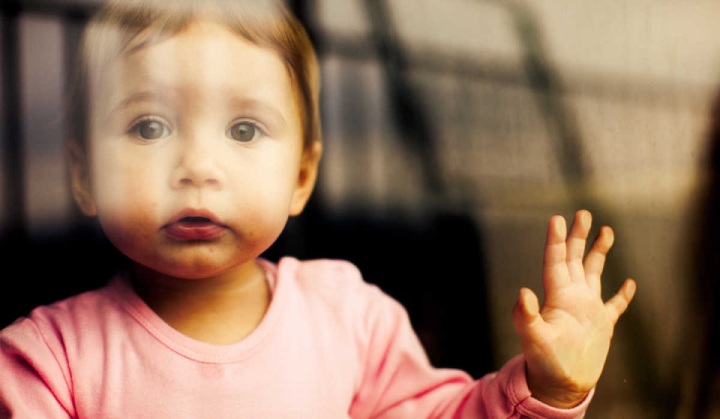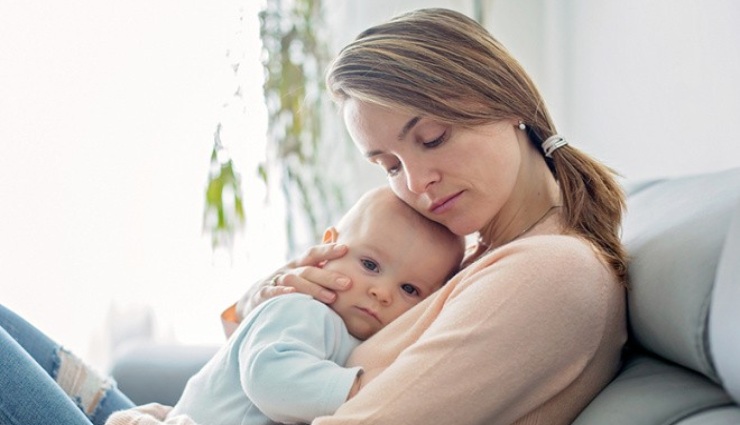You might be surprised by reading the title of this article and give a negative answer to this question in your mind, but surprisingly, the answer is yes. Although babies have no lived experience that makes them sad, according to mental health experts, babies can also become depressed. In this article, we talk about the symptoms, causes, and methods of diagnosing and treating depression in babies. Stay with us.
Psychologists’ opinion about infant depression
Dr. Christina Fiorvanti, a child psychologist, says: “Although most people think that infancy and childhood are a happy and carefree period, this period also has its difficulties and challenges.”
Dr. Patricia Farrell also says: “Little is known about depression in babies because babies do not have the language to express their feelings, fears or desires. “The only way to understand their depression is to observe their behavior.”
Symptoms of infant depression
A child’s mental health includes his ability to express his feelings and interact with others. Important social milestones are also relaxation when being held and smiling in response to attention from caregivers.
During the period when babies are growing and growing up, they may sometimes be more irritable and moody than usual. Babies gradually understand different environmental issues and react to the conditions with their behaviors. For example, parents going to work and leaving the baby alone with the nurse is one of the factors that cause the baby to be confused and sad. Although all babies experience these days, prolonged periods of irritability or withdrawal may indicate a problem.
One of the main ways to diagnose depression in babies is their emotional vitality. A crying baby is not necessarily a sign of depression. A depressed baby may be considered a good baby who does not cry or make a lot of noise.
Although babies have different personalities and temperaments, a sudden change in behavior and excessive quietness of a baby may be a sign of depression. As a parent, you know your child better than anyone. Suppose you feel that your baby expresses his emotions less than before. In that case, his eating and sleeping patterns have changed, and he has become more irritable than usual; it is better to visit a child psychologist and find the root of the problem.
Causes of infant depression

In ancient times, many people believed that it was impossible for babies or even children to be depressed. Scientists and doctors have recently discovered that infant depression is not only possible but may be much more common than people think.
Although the exact causes of infant depression have not been determined, psychologists have proposed several possible causes for infant depression. These possible causes are:
- Genetics;
- brain chemistry;
- Environmental factors;
- The mental health of parent or caregiver.
Babies’ first role models are their parents or caregivers, and they learn many emotions and behaviors from them. If a parent has depression, their baby may also be prone to depression.
In the past, many people associated preterm birth with an increased likelihood of childhood depression, but in a 2017 study, researchers found no difference between premature and full-term babies. However, according to this research, if stronger connections are established between the amygdala and other areas of the brain before the age of 2, babies will be more prone to depression. The amygdala is called the fear center of the brain.
Researchers believe that environmental factors also play an essential role in a baby’s depression.
Diagnosing infant depression
It is important to recognize possible symptoms of depression. Of course, don’t worry because the appearance of depression symptoms in a baby is not a sign of his clinical depression. According to the “Diagnostic Classification of Developmental Disorders and Mental Health in Infancy,” published in 2005, the diagnosis of depression in infants has five conditions:
- There has been a noticeable change in the emotional and behavioral patterns of the baby.
- The baby’s depressed mood and irritability continue for most of the day for two consecutive weeks.
- Symptoms of depression can be seen in more than one specific activity and relation to more than one person.
- Symptoms of depression in a baby cause discomfort and dysfunction or hinder his growth.
- Symptoms should not be related to diseases or the use of certain drugs.
These five conditions expose the baby to depression. If you have seen these symptoms in your child, you should talk to a professional as soon as possible for advice and treatment options.
Treatment of depression in infants
If your child has only had these symptoms for a few days, it may be due to minor discomfort caused by environmental issues and will resolve quickly. If his symptoms persist after two weeks, it is better to consult a child psychiatrist and relax. Although there is no specific medication prescribed for young children, a psychotherapist can help you better understand your child’s needs and help him feel calm and safe. Music therapy and infant massage may also be suitable options to reduce the symptoms of infant depression.
Since an essential part of the baby’s development is related to the family environment, the treatment of baby depression usually includes both the baby himself and his caregivers. Your presence in any evaluation and treatment for early childhood depression is essential because no one knows the moods and behaviors of a baby better than parents. The cooperation of family members and adherence to the treatment methods prescribed by the psychotherapist will play an essential role in improving the condition of the baby.
Coping with infant depression
Since infants cannot describe their feelings or experiences, decoding their emotions is very difficult. According to Dr. Farrell, physical contact, verbal interactions, using age-appropriate story books, and playing with other children are very helpful in improving a depressed baby.
One of our best tools to help children with social-emotional distress is to play with the child. Children’s language play is one of the most straightforward and potent interventions you can do at home for free.
The importance of the mental health of parents
“Parental depression is an important underlying factor for a child’s social-emotional development problems, and getting the right help to treat parental depression improves the child’s mental health,” says Dr. Fiorvanti.
Postpartum depression is a prevalent complication among women who have just become mothers. If you have symptoms of depression, it is better to see a specialist as soon as possible and start the treatment process. Available treatments will make you feel better.
final word
Mental health is a part of every child’s overall health and well-being and is as essential as physical health. It is important to remember that mood disorders do not necessarily mean clinical depression in the infant. If you feel the symptoms of infant depression in your child, see a therapist.
Do you have experience in the field of infant depression? Please share your valuable comments and experiences with us and our dear users.
Warning! This article is only for educational purposes; to use it, it is necessary to consult a doctor or specialist.



